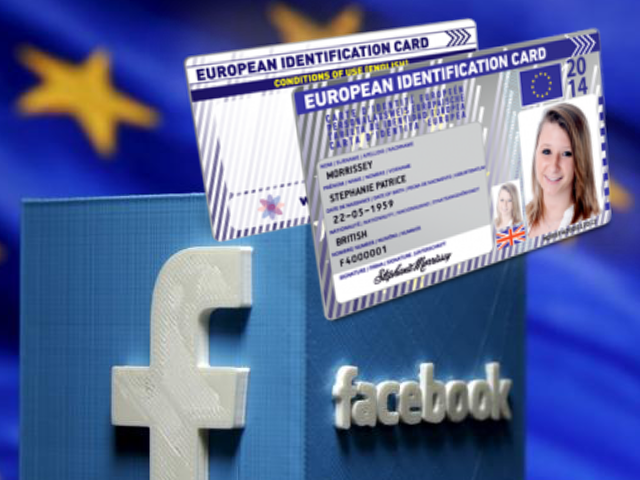The European Commission plans to attack citizens’ right to online privacy, insisting that state-issued ID cards should be used to log into platforms such as YouTube, Facebook, and even Uber.
The Vice President for the Digital Single Market on the European Commission, former Communist Andrus Ansip, is behind the next European Union (EU) raid on personal freedoms, promoting the idea of using national ID cards to log in to online services.
Leaked documents from within the European Commission revealed a call for the roll out of a more extensive use of national ID cards across the EU. The documents have since been uploaded to the Commission’s own website.
Mr. Ansip is from Estonia, a small Baltic country and former Communist state which has the most highly-developed national ID card system in the world. The Estonian state website boasts: “Much more than simply a legal picture ID, the mandatory national card serves as the digital access card for all of Estonia’s secure e-services.”
The paper outlines that: “In particular, online platforms need to accept credentials issued or recognised by national public authorities, such as electronic ID cards, citizens cards, bank cards or mobile IDs… for every consumer to have a multitude of username and password combinations is not only inconvenient but becomes a security risk.”
This draft document entitled ‘Online Platforms and the Digital Single Market’ is dated 25 May this year, and urges the log in policy on the basis that fake user reviews are misleading European consumers. The document states: “Online ratings and reviews of goods and services are helpful and empowering to consumers, but they need to be trustworthy and free from any bias or manipulation. A prominent example is fake reviews, where loss of trust can undermine the business model of the platform itself, but also lead to a wider loss of trust, as expressed in many responses to the public consultation
Breitbart London has previously reported on how the European Union plans to roll out a continent-wide ID card, with a view to using the data to impose Europe-wide taxes, and an EU-wide minimum wage, further bypassing elected national parliaments and handing more power to the unelected bureaucrats in Brussels.
The European Commission website further reveals that “on 1 July 2016, the new rules on trust services under the eIDAS Regulation will come into effect in the 28 EU Member States repealing the 15-year-old eSignature Directive and modernising the legal framework for trust services. This will be a turning point in the eIDAS journey and another big milestone towards a Digital Single Market.”
It does not appear to be mandatory, but uptake of national E-ID cards is encouraged by the Commission as the direction of travel for access to e-services. It does, however, define and regulate the legal basis for digital IDs for Europeans.
“This intrusive and seemingly authoritarian EU interference in social media and the internet is not new,” said Diane James, a Member of the European Parliament and the UK Independence Party’s spokesman for Home Affairs.
“In 2013, the European Parliament spent almost £2 million on press monitoring and trawling Eurosceptic debates on the internet for “trolls” during euro-elections amid fears that hostility to the EU was growing.”
They claim that “institutional communicators must have the ability to monitor public conversation and sentiment on the ground and in real time, to understand ‘trending topics’ and have the capacity to react quickly, in a targeted and relevant manner, to join in and influence the conversation, for example, by providing facts and figures to deconstructing myths.”
“Calling on us to log onto YouTube with national IDs etc shows a direction of travel which should worry anybody who believes in personal liberty,” said Ms. James, adding: “Voting Leave in this Brexit Referendum is our way to shout “Stop” and put an end to this madness.”

COMMENTS
Please let us know if you're having issues with commenting.